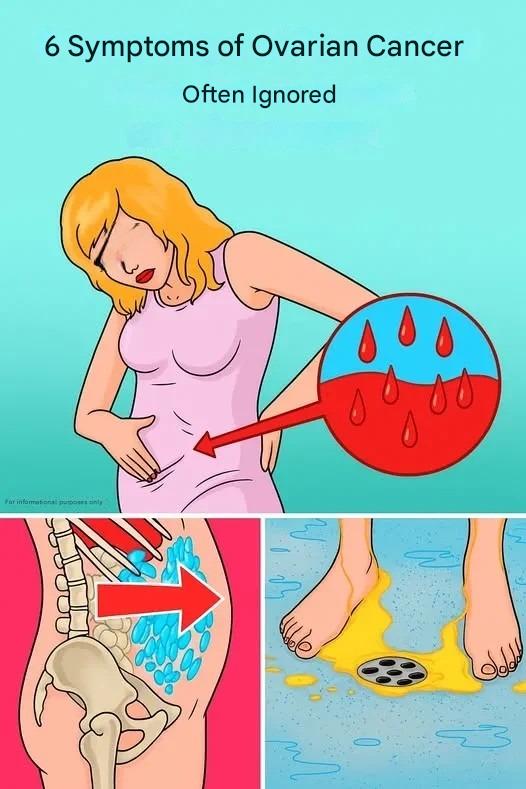Each year, around 7,400 women in the UK are diagnosed with ovarian cancer, but shockingly, only 20% of cases are detected at an early stage. These statistics are alarming, but knowing your body’s signals and recognizing six often-overlooked symptoms could lead to earlier detection and even save lives.
1. Feeling full quickly
It’s normal to feel full after a large meal. But if you feel the same way after eating a small amount of food, it could be a sign of water retention, a possible symptom of ovarian cancer. If this feeling persists or is accompanied by other unusual symptoms, see a doctor.
continued on the next page
2. Weight changes
Sudden, unexplained weight loss may be a warning sign of ovarian cancer. As the disease progresses, cancer cells can affect metabolism, leading to rapid weight loss despite eating normally. Additionally, ovarian tumors can cause loss of appetite or a feeling of fullness after eating small amounts of food.
3. Changes in the menstrual cycle
A scientific report revealed that 13% of patients cite bleeding as a symptom of ovarian cancer. Bleeding or vaginal discharge between periods or after menopause is a cause for concern. Additionally, any unusual changes in vaginal discharge that differ from normal can be a warning sign.
4. Changes in stool
Ovarian cancer doesn’t just affect the bladder; the tumor can also compress the intestines, causing problems like indigestion, constipation, or diarrhea. You may also experience fatigue, back pain, unusual bleeding, discomfort, and unexpected weight loss or gain. Because ovarian cancer presents with a variety of symptoms, any one of them is a reason to seek medical attention.
5. Abdominal bloating
According to the National Library of Medicine, bloating is the second most commonly reported symptom before a cancer diagnosis. This bloating can occur before or after meals, or be more intense during menstruation. As the disease progresses, fluid can build up in the abdomen, worsening discomfort and bloating.
6. Frequent urination
Frequent urination may be a lesser-known symptom of ovarian cancer. As the tumor grows, it can compress the bladder, causing a constant feeling of needing to urinate. Some women also experience difficulty emptying their bladder or increased pressure in the pelvic area.
THE CONTENT IS FOR INFORMATIONAL PURPOSES ONLY AND IS NOT A SUBSTITUTE FOR MEDICAL ADVICE.
Ask your doctor for advice regarding your health and health problems.
This article is provided for informational purposes only. Avoid self-medication and always consult a qualified healthcare professional before applying any information contained in this text. The editorial team does not guarantee any results and disclaims any liability for any damage resulting from its use.












